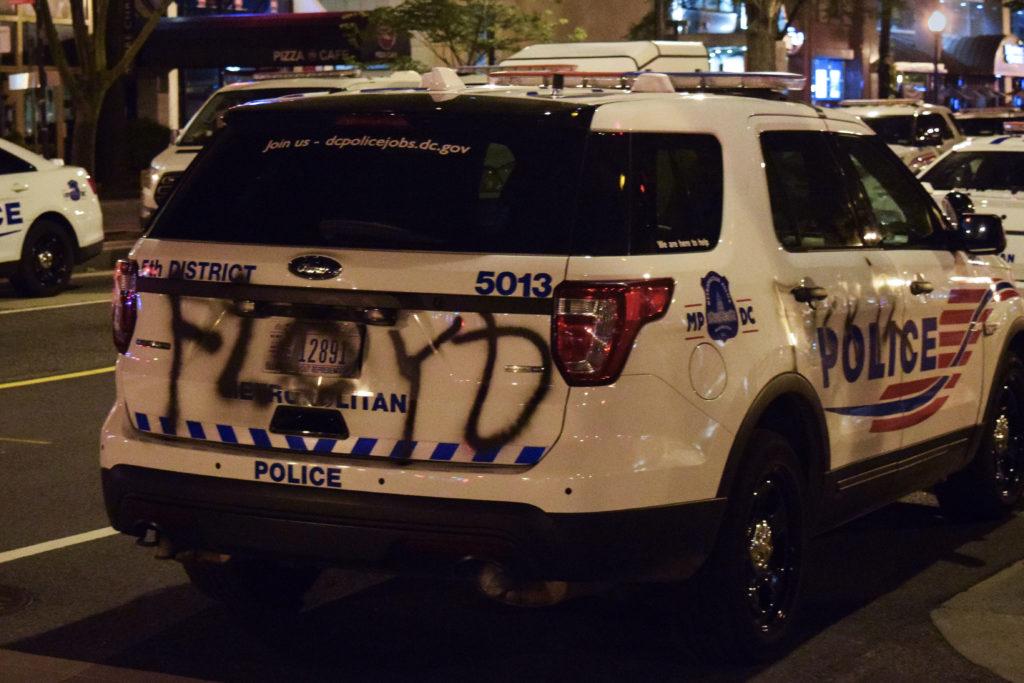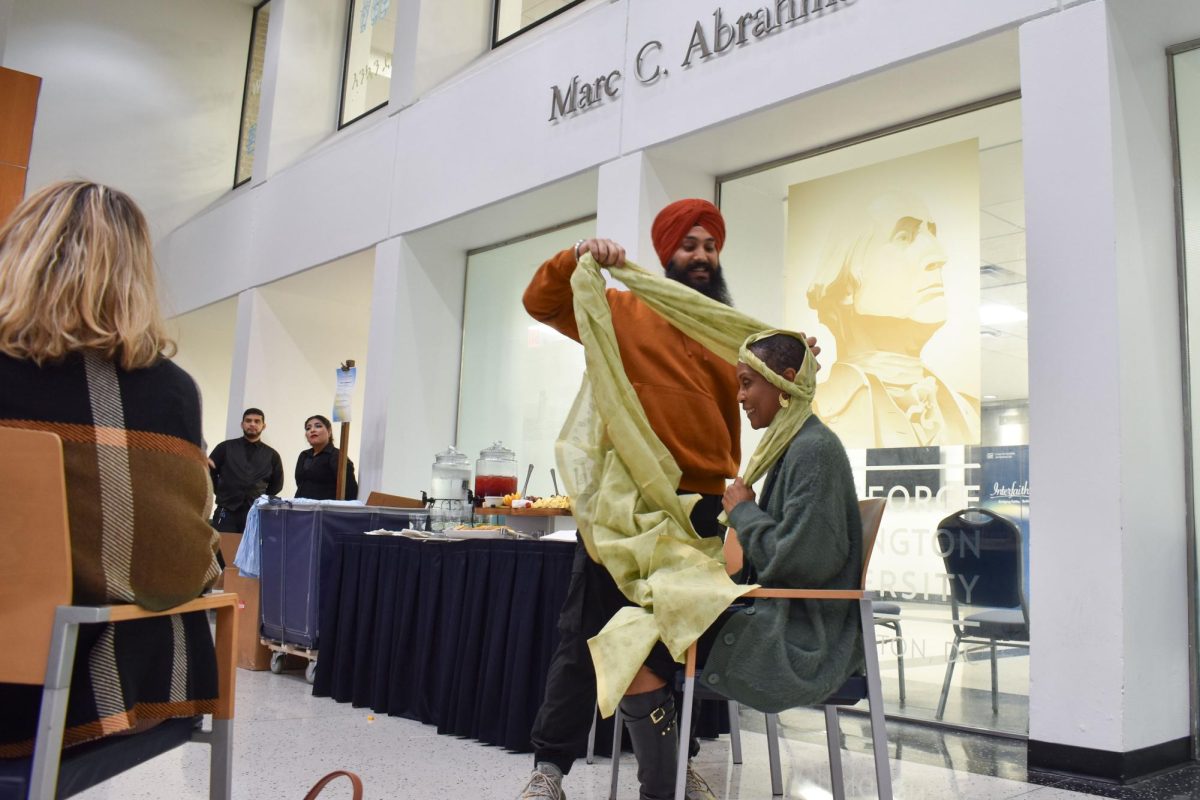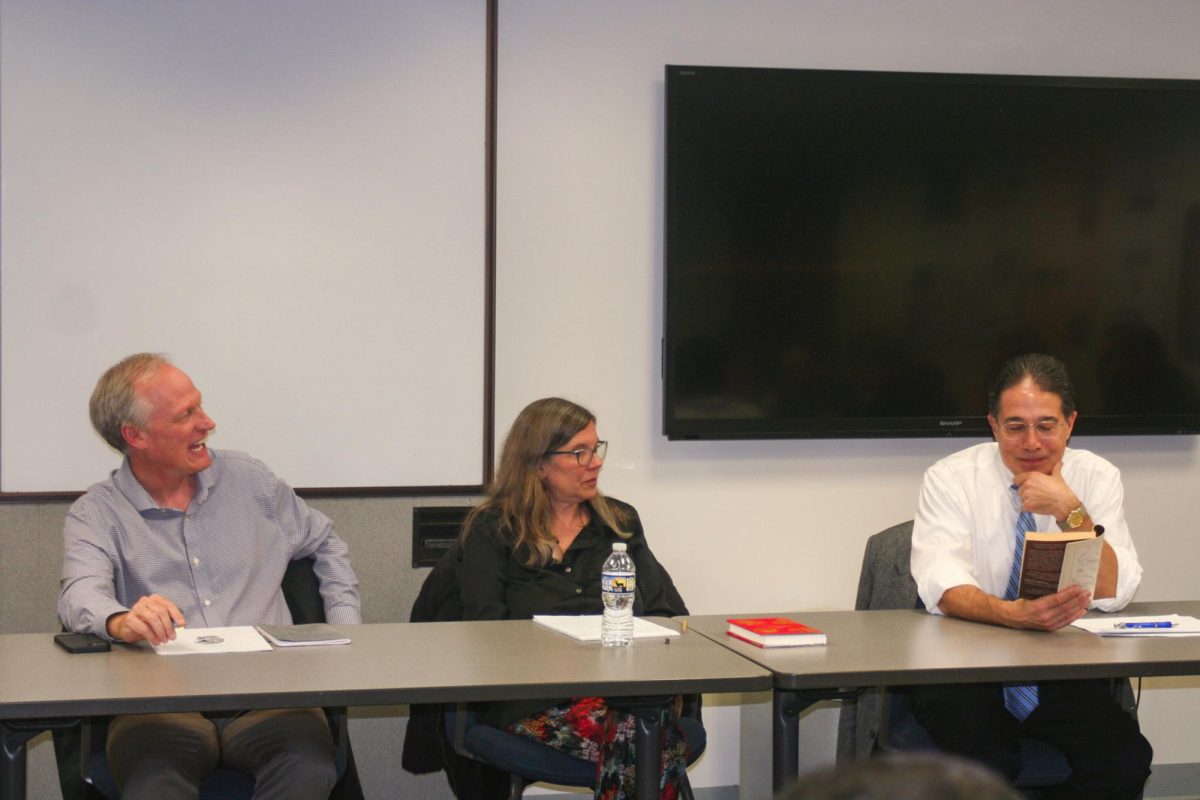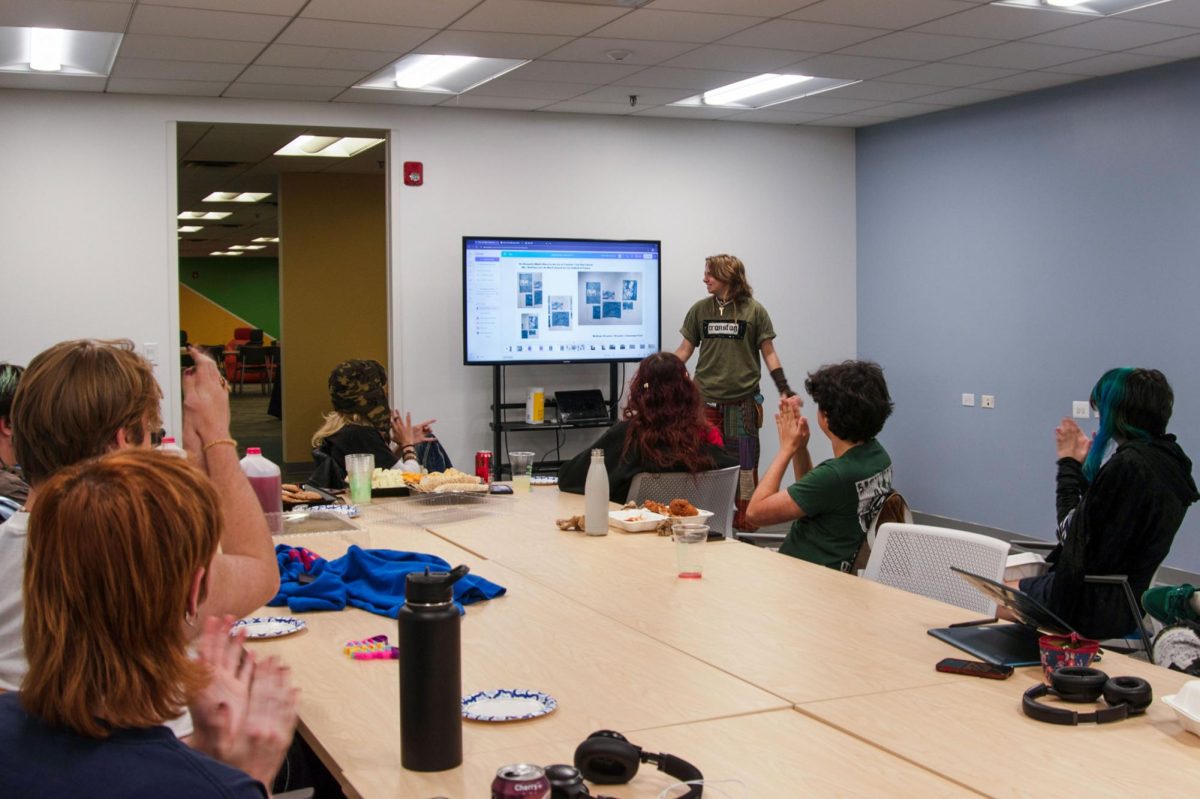Frustrated one night late last month, junior Carolyne Im logged off of Facebook after posting her final rebuttal in a digital argument surrounding the recent looting at McReynold’s Liquors.
The political communications major wrote that she hoped the McReynold’s owners would stand in solidarity with the Black Lives Matter movement and recognize that the riots and looting were a consequence of a marginalized community tired of calling out systematic racism and police brutality. But many members of the Facebook page Overheard at GW argued against her, commenting that violence and destroying businesses is not an appropriate way to protest.
Nationwide, thousands have joined in on protests following the deaths of George Floyd, a black man killed by police, and Breonna Taylor, a black woman shot in March by a Louisville Metro Police Department officer serving a “no-knock warrant.” Im said the public should be directing anger at police brutality instead of the damages to property.
“I think we need to have a larger conversation about how we’re responding to these protests and how a lot of people are only really paying attention now that property is being damaged,” Im said. “Only now that they have been affected in this one instance are they coming out and saying stuff, whereas before they could just ignore the murder of black people in this country.”
Six students scattered across the country said they have been challenged to navigate and express their positions on consequences of the demonstrations now occurring in all 50 states like violence, arson and looting. In interviews, students who participated in protests said they viewed media coverage of the violent riots outweighing and dominating that of the peaceful protests, but others added that civil disobedience is “necessary” when people aren’t listening to the demands of marginalized communities.
For Im, the protests reignited a conversation about the cold relationship between black and Korean Americans that historically stem from Korean shop owners shooting at looters during the 1991 Los Angeles riots. She said Korean Americans must acknowledge their history with the black community to prevent any future animosity and support the Black Lives Matter movement.
“I had a few conversations with other Asian Americans and Korean Americans who disagree on the point of our historical anti-blackness,” Im said. “The fact is that the way we responded to the Rodney King protests was a mistake.”
Junior Peyton Wilson, the executive vice president of the Black Student Union, said white and other non-black protesters and undercover police are the ones responsible for many of the riots taking place. She said Black Lives Matter leaders have repeatedly called out demonstrators who loot or vandalize for diminishing the movement’s overall message to end systematic racism and police violence against black Americans.
“I’m also really upset and hurt that our movement is being commandeered by violence and people who are taking advantage of the fact that people are frustrated and tired,” she said.
Wilson said she condones certain “intentional damage and rioting” because some landmarks like Richmond, Virginia’s Robert E. Lee statue act as painful reminders of the past. She added she supports protesters who burned down the historical Market House in Fayetteville, North Carolina, a town hall that hosted slave sales during the Civil War.
“If you’re going to burn stuff down, burn that stuff down,” Wilson said.
Sophie Gengler, a sophomore majoring in cognitive neuroscience and philosophy, said she has been participating in the D.C. protests and has seen clear direction from leaders adopting nonviolent direct action like sit-ins. She said civil disobedience is “absolutely” necessary to enact concrete changes like police reform, but she sees the media mainly focusing on small aspects of the movement like riots as problematic because the public is only being told one perspective.
Gengler added that she has adopted a more sympathetic stance toward the destruction of property when it belongs to large corporations because many have engaged in perpetuating injustices affecting marginalized communities. She said she was saddened to hear about the looting at McReynold’s because she saw the looters there as opportunists in comparison to the protesters she spoke with whose purposes were “grounded in love” and fighting injustice.
“My stance now is that the oppressed, those who experience injustices directly, have the ‘right to revolution,’” Gengler said. “Thoreau states you must cast the entirety of your existence as a counter friction to the machine. If you believe there is an unjust law in existence and you remain stagnant or yield your allegiance to the unjust government, then you are a conscientious supporter of injustices.”
Spencer Jones, a sophomore majoring in history, said he felt moved to protest after watching the video of Floyd’s death and seeing that the officers involved weren’t charged immediately after the video surfaced. He said he has been serving as a street medic in Denver but has heard a general consensus from the protesters he talked to that they are frustrated with the destruction caused by rioters after last week’s 9 p.m. curfew, which expired on Friday.
“This doesn’t do anything, smashing a window to the history museum that specifically has exhibits on Native Americans and things like that – that I would think this movement would really like to have – isn’t doing anyone any good,” Jones said.
Sophomore Misaal Irfan, an international affairs and public health major, said the demonstrations mark the tipping point of a community tired of arguing against police brutality without change. She said she sees the gravity of this month’s protests as being more likely to change structural issues in government than in the past because people are continuing to protest rather than returning to their daily lives after a few days of angrily posting on social media.
“I’m not saying I enjoy violence or am a pacifist that says war is not always the answer,” Irfan said. “But peaceful protests and conversations have been occurring for so many years. And sometimes people just get pushed over the edge, and I think that’s kind of what has happened with the black community and black people in America in general.”
She said it wasn’t until she went to a protest in Arizona that she saw the passion behind protesters’ actions and realized that the media focusing on the rioting was distracting the public from the demands of the demonstrations pushing for justice reform. Irfan added that seeing others generalize the protests as destructive resonated with her experiences as a Muslim American and helped her empathize with the peaceful protesters trying to speak out against police brutality.
“Not that anyone has associated me with terrorism, but generally as a group, Muslims have been referred to as terrorists,” Irfan said. “That’s like saying all protesters are looters or rioters – protest itself is just a human right. It’s an American right.”








